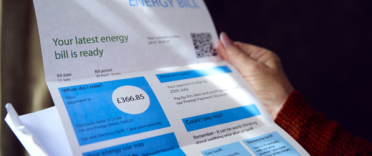
When will the energy price cap increase?
Ofgem, the energy regulator, is due to announce the next energy price cap on 26th August bringing it into effect from 1st October and it will remain at the announced level until 31st December. The January 2023 energy price cap will be announced by Ofgem on 24th November and is expected to be another upwards adjustment as Cornwall Insight reports.
"Our new forecasts for the January Default Tariff Cap have risen by over £650, meaning a typical household is now predicted to pay the equivalent of £4,266 a year for the three months to March 2023." source: www.cornwall-insight.com
Ofgem's energy price cap, introduced in 2019, was put in place to prevent variable tariff energy customers from severe volatility in the energy markets and to prevent the collapse of energy suppliers adding to consumer costs as was seen throughout 2021 and into this year.
What can energy customers do ahead of the price cap announcement?
Some energy suppliers are already contacting customers asking them to revise the amount they pay each month ahead of the impending increases and during a period when consumer energy consumption is lower due to the weather. Although the early adjustment offers may seem high, they could help take the sting out of expected rises during the winter when usage and energy rates will be at their highest.
Variable rate customers may be eager to find fixed rate tariff deals to lock in the rate that they pay and although these are scarce, it is worth checking rates through energy comparison sites and with your supplier.
Citizens Advice informs consumers, "The two most common tariffs are ‘fixed’ tariffs or ‘standard variable’ tariffs. If you get a fixed tariff it will usually last for 12 months and means the rate you pay for energy won’t change for the length of your contract. This doesn’t mean your bills will be the same each month - the more energy you use, the more you’ll pay. You might have to pay an 'exit fee' if you switch supplier or tariff early. If you get a standard variable tariff it means the rate you pay for energy will go up or down when global energy prices change."
Getting help if you are struggling with your energy bills
This week also saw reports that energy debt now exceeds £1 billion in the UK, a figure that will almost certainly increase unless more financial support is announced by the government.
There are some government measures in place that aim to provide the hardest hit households with some financial support and many households will already be in receipt of the first round of payments - you can read more at the government's "Help for households campaign"
Helpful guidance on how to access energy grants and approach your energy supplier if you can't keep up with your energy bills is available at Citizens Advice, "What to do if you’re struggling to pay your energy bills".




